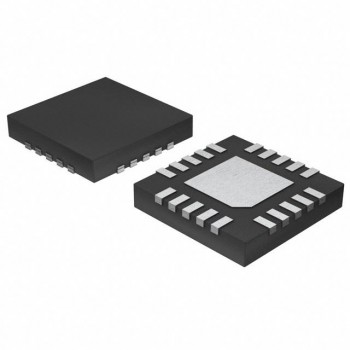Power supply modules are essential components in electronic devices and systems, providing the necessary voltage and current to ensure proper operation. In this article, we will explore the definition, working principles, and applications of power supply modules, highlighting their significance in various industries and technologies.
Definition of Power Supply Modules:
Power supply modules, also known as power modules or power converters, are electronic devices that convert electrical energy from a power source into a form suitable for powering electronic circuits and devices. These modules typically consist of components such as transformers, rectifiers, filters, and voltage regulators to deliver stable and regulated power output to the load.

Working Principles of Power Supply Modules:
The working principles of power supply modules involve several key stages to convert and regulate the input voltage into a suitable output voltage for electronic devices. The following are the basic working principles of power supply modules:
1. Input Stage: The power supply module receives the input voltage from the power source, which can be AC (alternating current) or DC (direct current).
2. Rectification Stage: In the case of AC input, the power supply module uses a rectifier circuit to convert the AC voltage into DC voltage. This stage ensures that the input voltage is in a form suitable for further processing.
3. Filtering Stage: The rectified DC voltage may contain fluctuations and noise. The power supply module employs filtering components such as capacitors and inductors to smooth out the voltage and reduce ripple.
4. Regulation Stage: To ensure a stable output voltage regardless of input variations or load changes, the power supply module includes voltage regulation circuits. These circuits adjust the output voltage to maintain it within a specified range.
5. Output Stage: The regulated output voltage is then provided to the load, such as electronic devices, ensuring they receive the required power for operation.
Applications of Power Supply Modules:
Power supply modules find applications in a wide range of industries and technologies, playing a crucial role in powering electronic devices and systems. Some common applications of power supply modules include:
1. Consumer Electronics: Power supply modules are used in consumer electronics such as smartphones, laptops, TVs, and home appliances to provide the necessary power for operation.
2. Industrial Automation: In industrial automation systems, power supply modules ensure reliable and stable power delivery to control systems, sensors, and actuators.
3. Telecommunications: Power supply modules are essential in telecommunications infrastructure, including base stations, routers, and communication networks, to maintain uninterrupted power supply.
4. Medical Devices: Power supply modules are critical components in medical devices and equipment, ensuring safe and reliable power delivery for patient monitoring, diagnostics, and treatment.
5. Renewable Energy Systems: Power supply modules are used in renewable energy systems, such as solar inverters and wind turbines, to convert and regulate the generated power for grid connection or storage.
Conclusion:
Power supply modules are fundamental components in electronic devices and systems, providing the necessary voltage and current for proper operation. By understanding the working principles and applications of power supply modules, engineers and designers can ensure reliable and efficient power supply solutions for a wide range of industries and technologies. The versatility and importance of power supply modules make them indispensable in modern electronic systems, contributing to their functionality and performance.

